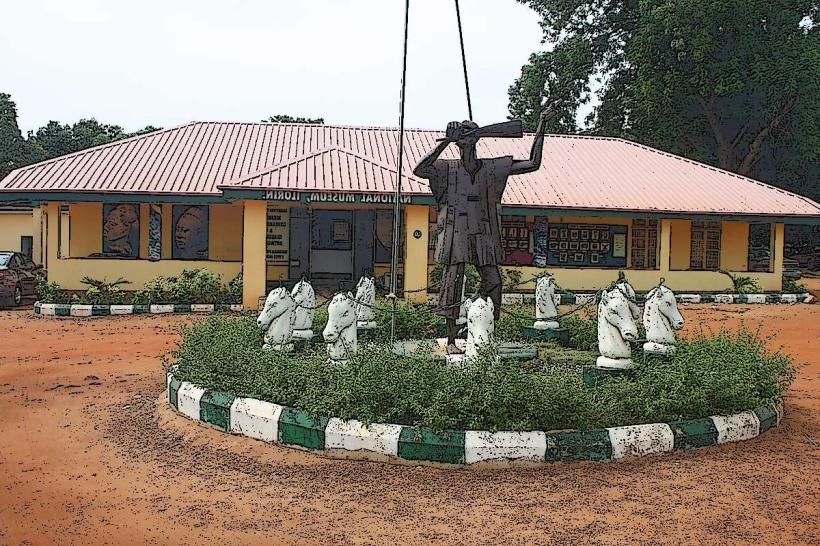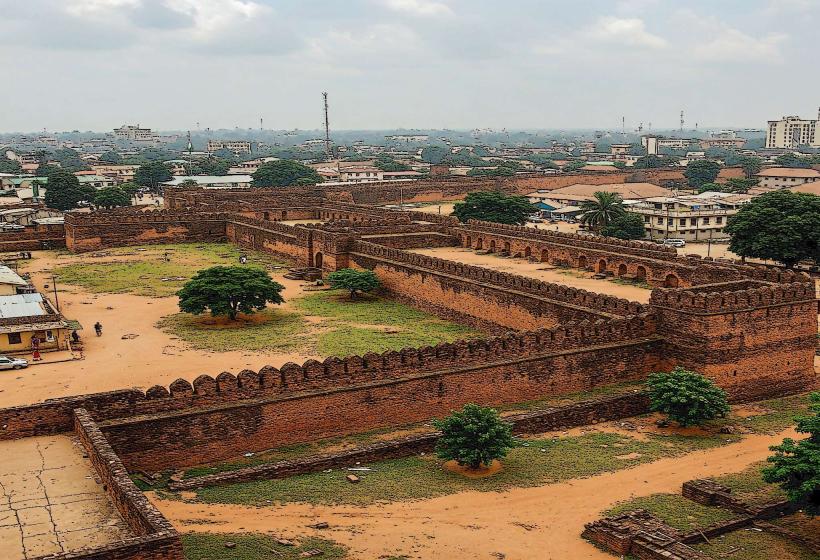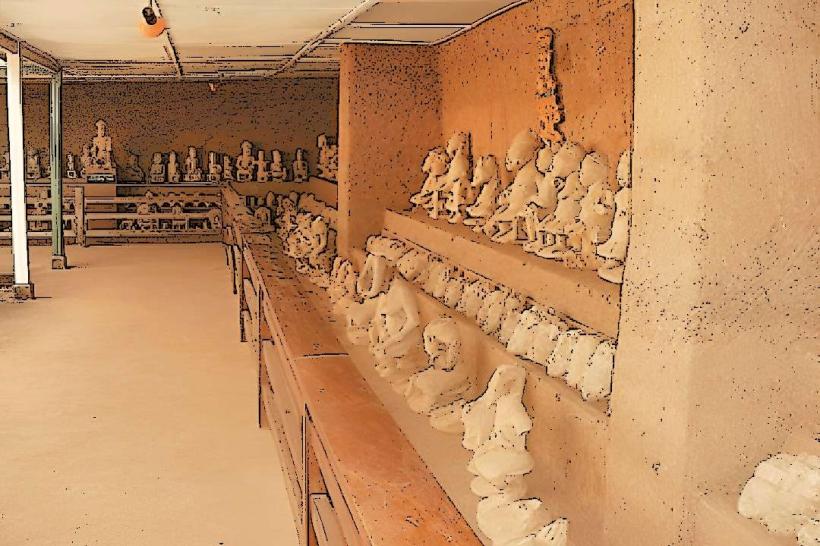Information
Landmark: Alimi MosqueCity: Ilorin
Country: Nigeria
Continent: Africa
Alimi Mosque, Ilorin, Nigeria, Africa
The Alimi Mosque in Ilorin, Kwara State, Nigeria, is a revered and historically significant mosque that plays an essential role in the city's Islamic heritage and spiritual life. Here's a more detailed look at its history, architecture, cultural significance, and role in Ilorin’s religious landscape.
Historical Background
Shehu Alimi: The mosque is named after Shehu Alimi, a prominent Islamic scholar and the first Emir of Ilorin. Shehu Alimi, originally known as Al-Salih, was instrumental in spreading Islam throughout the region. He arrived in Ilorin in the early 19th century and is credited with establishing the foundations of Islamic practice in the city.
Foundation of Islam in Ilorin: Shehu Alimi’s presence in Ilorin is considered a turning point in the city’s history. Before his arrival, Ilorin was a culturally diverse city, with various religious practices. Alimi, through his scholarly work and religious influence, converted many locals to Islam. His teachings emphasized the principles of Islamic law, education, and the establishment of a strong Muslim community.
The Role of the Mosque: The Alimi Mosque is not just a place of worship but also a historical monument that symbolizes the early establishment of Islamic governance and spirituality in Ilorin. The mosque, which was originally built to serve the local Muslim community, has evolved over time to accommodate the growing number of worshippers and continues to be a central figure in Ilorin's Islamic history.
Architectural Features
Traditional Design: While detailed architectural records of the mosque are scarce, like many historic mosques in Nigeria, the Alimi Mosque reflects traditional Islamic architectural elements. These include:
Minarets: Tall towers that rise above the mosque, offering a visual representation of Islamic architectural style.
Courtyards: Open spaces that are integral to many traditional mosques, where worshippers gather before or after prayers.
Prayer Hall: The central hall where the congregation gathers for daily prayers, especially the Friday prayers (Jumu'ah). The interior likely follows a simple yet serene design, conducive to worship and reflection.
Renovations: Over the years, the mosque has undergone various renovations and expansions to accommodate the growing population of worshippers and to ensure its structural integrity. However, much of its original structure and design has been preserved.
Spiritual and Cultural Role
Place of Worship: The Alimi Mosque serves as the primary mosque for Muslims in Ilorin, where daily prayers (Salah) are held, along with special prayers during Islamic festivals like Eid al-Fitr and Eid al-Adha. It is the center of religious activity for many Muslims in the city.
Community Gatherings: Beyond the prayers, the mosque is also a hub for various Islamic community activities. It hosts religious lectures, seminars, and classes on Islamic teachings and Quranic studies. These educational activities aim to promote Islamic values, ethics, and knowledge, ensuring the continuation of Shehu Alimi’s mission of religious education.
Cultural Preservation: The mosque is a symbol of Ilorin's rich Islamic cultural heritage. It has preserved Islamic traditions for generations, contributing to the city’s identity as an Islamic center in Nigeria. The Alimi Mosque, along with other landmarks in Ilorin, helps maintain the cultural fabric of the city, especially in an era of rapid modernization.
Influence on Ilorin’s Development: The mosque’s influence extends beyond religion. It has historically been tied to the development of Ilorin as a significant center of trade, culture, and politics in the region. The role of the mosque in the social and political life of the city cannot be understated, as it has often served as a meeting place for discussions and decisions related to the governance of the Emirate.
Location
Position in Ilorin: The Alimi Mosque is located in Ori Oke Jinji, near Ago Market, which is in the heart of Ilorin. This central location ensures that the mosque is accessible to both locals and visitors, making it an important landmark within the city. Its position near the market also reflects the historical connection between religion and commerce in Ilorin, where trade and worship often coexisted.
Accessibility: Being centrally located, the mosque is an easily accessible place for the community. It also serves as a focal point for travelers and tourists interested in exploring Ilorin’s Islamic heritage and historical sites.
Social and Educational Contributions
Islamic Education: The mosque plays an important role in religious education within Ilorin. It offers Qur’anic schools for children and adults, where they learn the basics of Islam, including the Quran, Hadith (Prophetic traditions), and Islamic jurisprudence (Fiqh). These programs are essential for preserving the knowledge and practices that Shehu Alimi brought to the region.
Charitable Activities: Like many mosques in Nigeria, the Alimi Mosque is involved in charity work. It provides assistance to the needy in the community, including financial support, food distribution during Ramadan, and organizing programs for the less privileged.
Preservation of Shehu Alimi’s Legacy
Commemoration of Shehu Alimi: The mosque not only serves as a place of worship but also as a monument to the life and work of Shehu Alimi. His legacy as the first Emir of Ilorin and a key figure in spreading Islam in the region is preserved through the mosque, and special events and commemorations are held in his honor.
Tourism and Heritage: For visitors to Ilorin, the Alimi Mosque is a must-see historical site. It provides a deeper understanding of the religious and cultural heritage of the city. Tourists can learn about the role of Islam in Ilorin’s development and the influence of Shehu Alimi’s teachings.
Conclusion
The Alimi Mosque is more than just a religious building; it is a cornerstone of Ilorin’s Islamic history and identity. Through its association with Shehu Alimi, its architectural heritage, and its role in community life, the mosque remains a vital institution in Ilorin. It continues to serve as a beacon of spiritual guidance, education, and cultural preservation for the people of Ilorin and the broader Muslim community in Nigeria.





